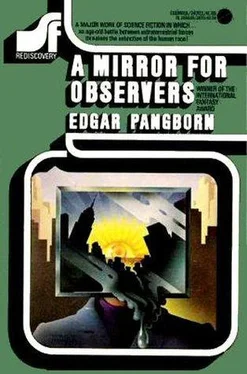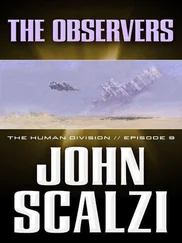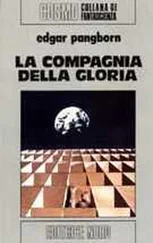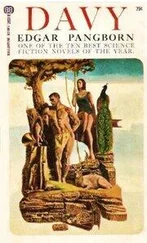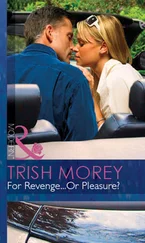I took wrong lanes among the clattering desks and ran into a snafu of dead ends from which I was rescued by a stenographer. It used up a few minutes. When I reached the lounge Walker was outside at the water cooler. His hyperthyroid gray eyes peered at me blindly, perhaps without recognition. Would a trifling error in the routine of Party terminology have made his big hand quiver so badly he couldn’t hold a paper cup?
I wanted to telephone Sharon. But after that interview with the cold and secret thing that used to be Billy Kell I was in a bad reaction, a foul temper. I would have snarled, and scared her, or said too much. I promised myself a talk with her after meeting Max, if it wasn’t too late in the evening. I ate a dull dinner alone, then trusted my fortunes and my sacred honor to a taxi driver who whisked me across town and into Eighth Lower Level. In a single-lane entrance radiant with white tile, the motor died of itself; the driver pressed a coin into a wall slot. A panel on his dashboard bloomed in orange light; he touched a tab on it marked W. The motor woke without his guidance and the taxi rolled into a mystery of humming and radiance. My driver lit a smoke with both hands off the wheel. “What the hell?”
“First time, bud? Never get used to it myself.” He slid to the right, to rest both arms on the back of the seat and face me companionably. By the speedometer, we were doing 120. “Uptown traffic ain’t heavy this time of evening. All done with this here Seeing Eye. It ain’t human. But you know, bud, it ain’t that I’m used to it, but I’m getting so all I think is, hell, here’s a chance to stretch. Got a little shocker on the wheel, don’t hurt, just reminds you to keep your hands off of it.” He yawned.
I watched a blur of lights and pillars. “Ever have any accidents?”
“Not a one, they say. It’s the scanner. Gives a once-over, the second you drop in your four bits. I got snagged that way once — points was bad, I hadn’t known it. Robbie shunted me over into the repair yard just inside the entrance. Repair man’s plenty human — cost me three bucks and you know what? My fare wouldn’t pay it. Sulked. Well, it was a dame with a date to meet. Funny thing, they still get a few folks that think the lower level will take any old car. Got a cop at each entrance to weed ’em out. Damn fool out-of-towners mostly…. Here comes the turnoff.”
“Already?”
He chortled. We hummed through a subterranean clover leaf and up to an exit, where he sighed and took over the wheel. “Thing of it is,” he said, “it ain’t human….”
Green Tower Colony is in soaring modern design. Whatever the surfacing material may be, the effect is of green jade with a muted shining. The tower dwarfs the uprights of the bridge, without diminishing the airy pride of a structure now thought of as very old. Keller’s apartment is on the fourteenth floor immediately above the twelfth.
Keller admitted me, absently friendly, tired but not relaxed. At his doorbell two other names were listed: Carl Nicholas and Abraham Brown.
As I entered the elaborate foyer I heard piano practice softened by closed doors. Someone was trying to make sense of the eighth Two-Part Invention of Bach, with fingers and brain by no means ready for it. The same left-hand blunder was repeated twice as Keller took my coat and steered me into a solemnly expensive living room. The player knew the error but hadn’t learned that only slow practice could correct it. Though muffled, it created a maddening background of frustration, impatience goaded to futility. “Scotch?” said Keller. “Still a bit too early to go up there.”
“Thanks.” He busied himself at a fantastic little bar. Something nagged me, besides the stumbling music. Not the lavish evidence of money: I already knew that Max’s type of messianic enterprise is a gold mine. The legions of the lonely, the mentally and emotionally starved, the bewildered and resentful, the angry daydreamers — who of them wouldn’t chip in five or ten dollars to buy a substitute for God, or Mom, or Big Brother, or the New Jerusalem? It wasn’t that: it was something the corner of my eye had noticed as I entered the room and then lost. I rediscovered it while Keller fussed with the drinks. Simply a painting near the arched entrance from the foyer. I had to drift toward it, and stare.
There was a background of melancholy darkness deepening to black. A mirror, and perhaps some light was felt as coming impossibly out of the mirror itself. A young man looked into it. Of him you saw only a bare arm and shoulder, part of an averted cheek; these alone were enough to speak, and poignantly, of extreme youth, whereas the face in the mirror was bitterly knowing with many years. There was in it no grotesque, no exaggeration of age. Taken alone, that sorrowing outward-gazing face might have belonged to a man with thirty or forty difficult and disappointing years behind him. I suppose any imaginative artist might have hit on such a conception, and while the technical skill was great, so is that of a thousand painters. But…
“Like it?” said Keller idly, coming behind me with my drink. “Abe gets the damnedest ideas sometimes. Not everybody cares for it.”
I put my face in order. “Rather startling work.”
“I guess so. He doesn’t really work at it, just tosses ’em off.”
“Abe — oh, Abraham Brown? I saw the name on your doorbell.”
“Uh-huh.” He was without suspicion: Will Meisel is quite functional. “Friend of mine, shares this apartment with my uncle and me. He’s practicing now, don’t like to bust in or I’d introduce you.”
I thought: “ Your uncle?”
“Some other time,” I said. “Is he — uh — interested in the Party too?”
“More or less.” Keller sat down with his drink, sighed, waved smoke away from his face in a human gesture. “Not really politically conscious. Just a kid, Mr. Meisel. Hasn’t found himself. Only twenty-one.”
I had to change the subject or betray myself. “Max live near here?”
Keller smiled tolerantly; his eyes said I was a little slow with the drink. “Right upstairs. Penthouse….”
Angelo is alive. I finished my drink, not obsequiously but fast.
A gorilla searched me politely in the penthouse foyer, and Keller apologized for not warning me about it. It’s fortunate the grenade fits flat to the skin. Joseph Max was already in a chattering crowd. Keller ran interference for me through a forest of arms, bosoms, cocktail glasses. My mind was downstairs with “Abraham Brown.” I believe my foggy abstraction was mistaken for the tongue-tied veneration I was supposed to feel in the presence of a Great Man.
At close range the resemblance to Calhoun ends with the jaw. The rest of the big sallow face is blurred and puttyish under a graying mane. Hyperthyroid eyes like Walker’s and with the same weak look, almost of blindness. He probably avoids glasses out of vanity, but of course Max is anything but blind: he had Will Meisel weighed, taped, card-indexed in one smiling glance. I saw in him, Drozma, something of the paranoid intensity of Hitler; not very much of the peevish intellectual fury of Lenin and his mirthless bearded schoolboys; plenty of naked power hunger, but very little of the genuine ruggedness we associate with Stalin or Attila or Huey Long. Max is in the tyrant tradition, but there’s a weak core. His first major defeat may be his last — he’ll shoot himself or get religion. But the machine he’s built won’t necessarily crack when he does.
“Mr. Meisel! Mr. Keller spoke of you today. Fine to meet you, sir. Hope you’ll want to work right along with us.” He has charm.
I said: “This is a great year for America.”
Thought that one up all by myself. The large eyes thanked me. I watched him testing the words for a campaign banner. A bright platinum girl blazed a smile at me. Glasses went up in a toast to something or other. At a directive glance from Max, Platinum took me in tow, provided me with a drink, and clung. Miriam Dane, and a smoldering bundle she is.
Читать дальше
